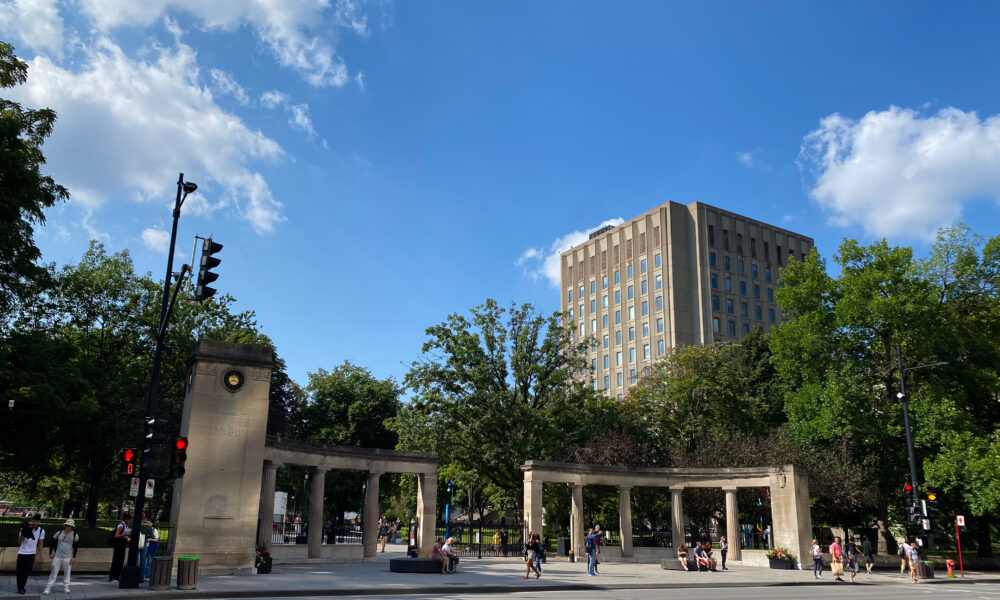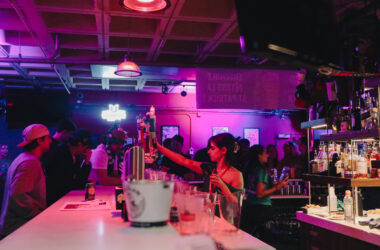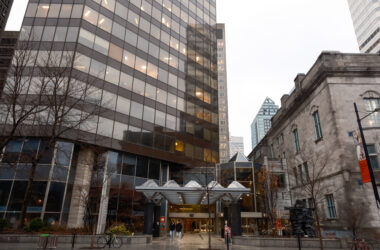McGill closed its downtown campus to public use as the Service de police de la Ville de Montréal (SPVM) officers and private security firm, SIRCO, dismantled the 75-day Palestine solidarity encampment in the early hours of July 10. Beginning the same day, all buildings were closed to students, courses were moved online, the campus was blocked off to the general public, and the McGill University Emergency Operations Centre urged staff and students in an email communication to avoid campus. Regular campus use as a public park and studying space was effectively suspended.
Partial restrictions were in place in the downtown campus through Aug. 5. Between July 10 and July 15, 18 buildings were closed entirely. Any research or courses in those buildings were moved online and all staff were required to work remotely, if able. On July 16, key card access was restored to these buildings for essential faculty and two entry points to lower campus were opened between 8 a.m. and 5:30 p.m.. Individuals were required to show their McGill ID before entering lower campus.
The Roddick Gates were finally opened on July 22 and building access was restored to full public hours on Aug. 5, meaning that McGill ID was no longer necessary to enter lower campus.
As of Aug. 26, the Emergency Management page dedicated to the status of the gradual reopening process reads that those faculty, students, and staff who need to conduct university business on campus outside of opening hours “may do so, but must carry their McGill ID card and may be asked to present it.”
President Deep Saini wrote an email to the McGill community on July 18 explaining the administration’s intentions behind the closures.
“Our phased reopening aims to reduce, where possible, the risk of occupations or vandalism […] incidents that were not legitimate forms of expression or assembly,” Saini wrote. “As we look ahead, we are called to reestablish a climate where each of us feels welcomed, celebrated, recognized, uplifted, and capable of sharing our views without fear of retribution, regardless of who we are or what perspectives we hold.”
The McGill Media Relations Office echoed Saini’s statement and further emphasized the closures as a means of avoiding further occupation of campus.
“This approach also provided the time and space needed to stabilize the campus and provide all members of the community who have been working tirelessly for weeks the time and space needed to regroup, restore the campus’ physical state and operations, and to plan for the Fall term,” the Office wrote in an email to The Tribune.
However, some McGill community members—including those active in organizing for Palestine—have criticized McGill’s recent closures of campus. One professor involved in profs4palestine who wished to remain anonymous due to privacy concerns expressed disappointment in an email to The Tribune.
“It upset me—as did most everything else about the way the Administration reacted to the encampment,” they wrote.
In an interview with The Tribune, Sonia Nouri, U3 Arts, explained her confusion and difficulties moving around campus during the closures.
“When I finally went on [campus] it was really jarring how hostile the environment felt,” Nouri said. “It is really difficult to get around campus without having a confrontation with some kind of security or seeing someone else have a confrontation with some kind of security.”
Passang Regyal, a Masters student in the Faculty of Arts and Science cited few disruptions to her daily routine but she was not happy with the closures and did not look on them as an appropriate means of quelling campus tensions. Both students made claims that the presence of private security and police was unnerving and threatening.
“I don’t think there was any adequate explanation provided by the university for the extent of the closures, especially when it comes at the cost of public use of the outdoor spaces and the solidarity and activism of the McGill community that the encampment represented,” Regyal said.









